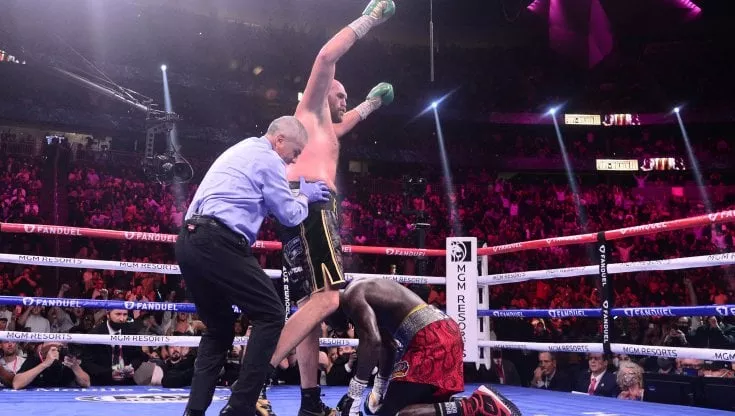In the last chapter of the trilogy, we can affirm that Tyson Fury and Deontay Wilder have represented their existential parabola. In Las Vegas one of the most dramatic fights of the last years took place: Fury deservedly won it, still world heavyweight champion for the WBC after having knocked down the American at the eleventh round. It’s the reaffirmation of a superiority appeared evident in the victory of the second match, in February 2020, after the draw of the first one.
During the presentation we wrote about extraordinary giants in the ring, but complex to the limit of fragility in life. From Fury’s depression that led to drug addiction, to Wilder’s anguish: the latter’s youthful fear of not being able to bear his little daughter’s illness (then fortunately healed), even his intentions to end it all. Rises and falls, just what was seen in the ring of the T-Mobile Arena. Five landings in total, Wilder above all lived the fight constantly on the edge of the abyss. The man from Alabama tried to hold up the world with one punch, he couldn’t. Despite the work of new lieutenant Malik Scott, he did not magically become Muhammad Ali at age 35. His boxing is pure power, but there is little else. He has only one shot, the right, one of the most devastating ever. But he goes on only with that: it seemed to be enough when in the fourth round he hit Fury, landing him twice. But once Gipsy King, the king of the gypsies as he likes to be called (he comes from a nomadic family that arrived from Ireland and stopped in Manchester), has overcome the storm, the match has taken an unequivocal turn.


